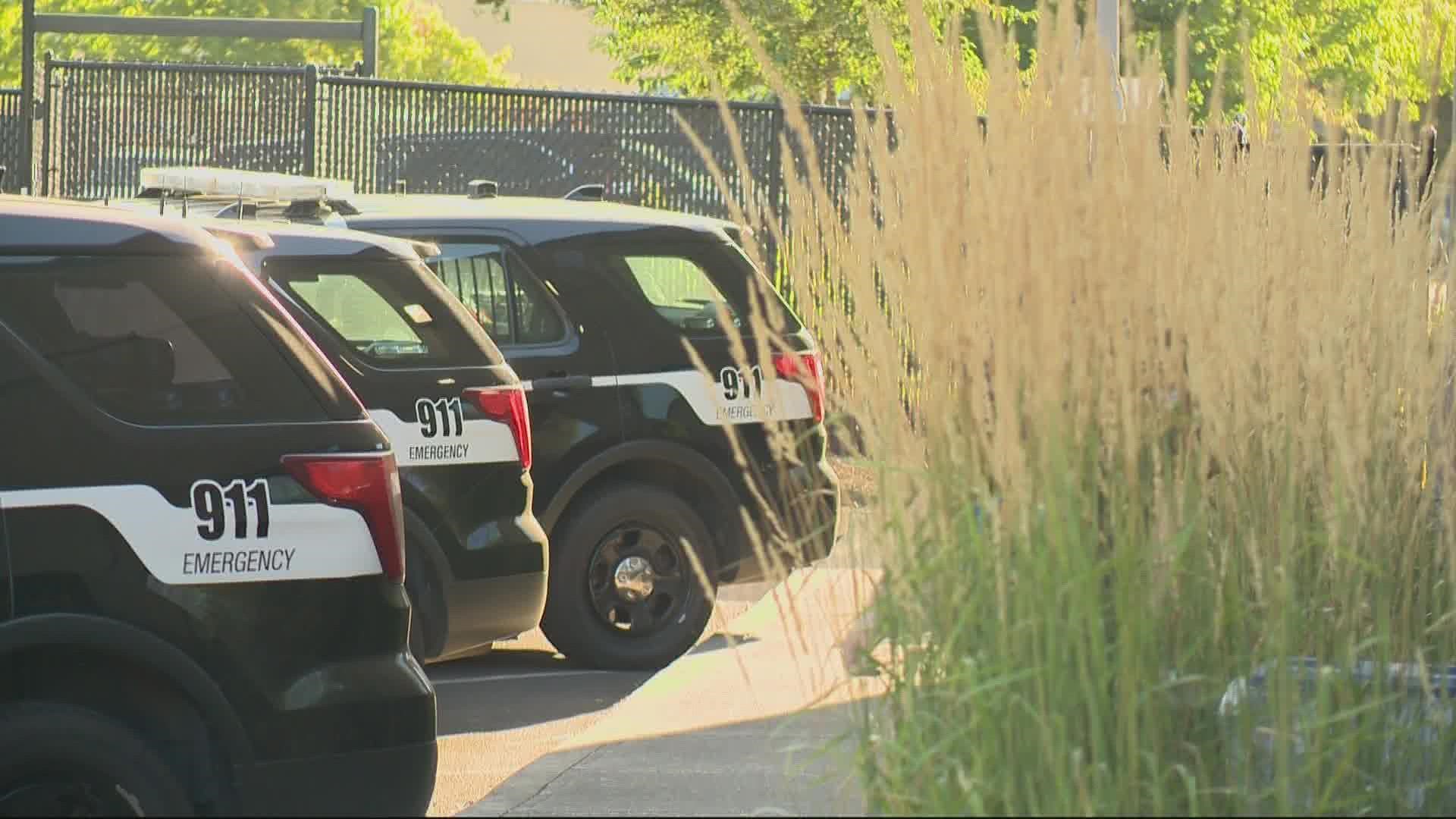TIGARD, Ore. — Officer Jacob Teeny was hired by Tigard police in October 2021. Teeny said it's a career he was looking forward to.
"My biggest thing that I've always wanted to do is just some type of public service," Teeny said.
After getting hired, the department signed him up for the state's training academy in Salem, Oregon. Every new officer must get certified before they can begin any official police duties. Teeny waited just under two months before heading off to the academy.
"So that six to eight weeks that I had before was a little bit out of the norm. I was kind of the first person to do that." Teeny said.
At the time, that six to eight weeks was considered lengthy. Today, the wait time is now more than six months.
March 2023's class is the soonest one with an opening.
"We didn't use to have that problem," said Tigard Police Commander Jamey McDonald. "We could hire somebody, they'd be here, do an orientation and some pre-academy work. Some initial training for maybe three or four weeks and then we'd send them off to the academy, but now we have several months to fill."
While Teeny waited, he was among the first in the Tigard Police Department to go through what the department called "Phase Zero."
"So essentially, you're doing ride-alongs in uniform with another officer and you're just basically observing the whole time. You're not doing anything, you're not making any arrests or anything like that." Teeny said.
Oregon state law says a department must send a new hire to the academy, "not later than the 90th day after the date of the officer's employment by the law enforcement unit." There are exceptions to that rule if there are delays at the academy.
In the state of Oregon, all city, state and county law enforcement hires go to the state's only academy. A16-week course at the Department of Public Safety Standard and Training campus in Salem.
"We are limited by the amount of students we can put into any particular class," said Acting Director Brian Nelson.
Each class is limited to 40 students. Nelson said that's the way the classes are designed and there isn't room in the class to increase the number able to attend. There, new hires learn everything about police work from how to conduct a traffic stop to taking part in drills that mimic real life scenarios.
State funding, though, is keeping more officers from getting through. The academy is funded every two years to hold 16 classes over the 24 month period. It's called the "biennium" and Oregon's current biennium ends June 30, 2023.
Typically, classes would be held in month one and two, then a break in month three. This pattern would repeat until all 16 classes were held over that 24-month period.
There's wiggle room, though, in how the state can conduct the classes. If there's enough demand, the state has the authority to move a class from the latter part of the biennium into one of those gap months.
OTHER STORIES: Looking to become a 911 dispatcher? Portland wants you
Nelson said they've already moved three classes forward from the backend of the biennium.
"April was the first class that we plugged in. April would be the first time that we kind of tried to address the need," Nelson said.
Doing so leaves a larger gap at the end of the biennium.
Nelson said the department will look to the state legislature for help, "What we're doing is we're going forward to the legislature and asking for a limitation increase to fund additional classes at the end of the biennium."
During the last few bienniums, the state has funded two additional classes each time and will look to do so again this cycle, Nelson said.
With new hires having to wait six months to get in to the academy, that also means having to wait more than a year before they are out on the streets alone.
McDonald said they have three officer openings and another dozen or so officers in some form of training.
"Which for our patrol division is really huge," said McDonald.
The discussion of adding more classes to the biennium permanently is something Nelson said they constantly are looking at and will address with the legislature. In 2008, there were only eight classes offered during the biennium.

